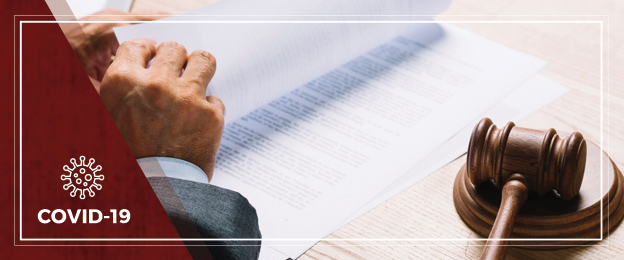The most useful estate planning document during this COVID-19 pandemic is the financial power of attorney.
This document allows you to immediately access your elderly parent’s assets. If you’re unsure whether your parent is paying their bills in a timely fashion, then the power of attorney will allow you to access their financial information and pay their bills if necessary.
If your parent isn’t paying the bills, and if you don’t have the power of attorney, then your parent could risk experiencing the interruption of services (i.e. utilities, telephone, Internet), or the instigation of collection efforts, and the possible tax sale of their house.
Locate All Financial Power of Attorney Documents
As with all estate planning documents, your first task is to locate all financial powers of attorney for your parent or loved one. It is normal to have older versions, but it is critical that you review the documents to make sure that the newer version negates the older version. Otherwise, you would have two active financial powers of attorney that may have separate instructions. This will create confusion.
Beware of Weak Powers of Attorney
The other critical area of a financial power of attorney is that if the power of attorney is silent regarding a particular power, then the agent was not granted that power. For example, if the power of attorney is silent regarding the right to access a parent’s life insurance policy, then you, as the agent, have no right to access her policy.
The issue of having a financial power of attorney that is not robust enough is a common issue for older powers of attorney or Internet-driven powers of attorney. This creates problems if you discover too late that your power of attorney is too weak—after an elderly parent has already lost the competency to sign a new document.
How to Execute a Financial Power of Attorney During COVID-19
In Maryland, in order for a financial power of attorney to be properly executed, you must have a witness signature, and that signature must also be notarized. Of course, COVID-19 has made that more challenging.
Governor Hogan issued new emergency rules to implement remote notarization at the beginning of 2020. There were new rules in place that allow for remote execution of the financial powers of attorney. However, these emergency rules expired in October 2020. The notary rules in place now require the presence of a notary in front of the signor. This creates unique issues for clients in assisted living and nursing homes that likely have restrictions on who it admits. Our office normally works with the assisted living and/or nursing home on a case by cases to work with them regarding document execution.
At the Law Offices of Adam J. Roa, it is our practice to review the estate planning documents with the potential signer via Zoom first and then separately arrange for a document execution. For many of our clients, this involves a drive-by document execution.
We’re Here to Help During COVID-19
We understand that these are uncertain times. Now, more than ever, is when your loved ones need you to be their advocate in planning for the future.
As an experienced elder law firm in Maryland, we’re happy to guide you through the process of preparing a financial power of attorney. Please call us at (410) 296-8166 x292.




